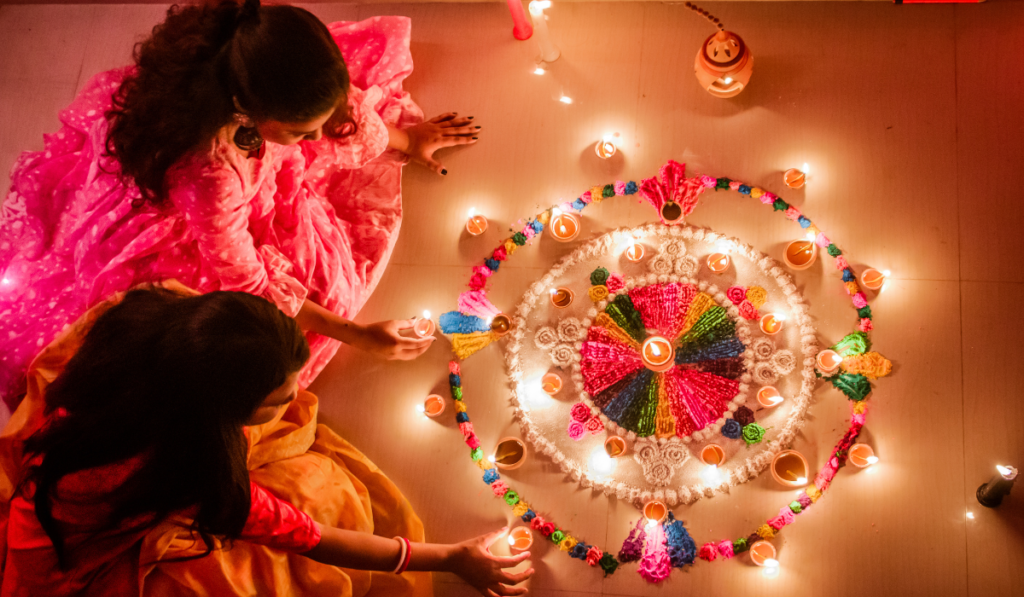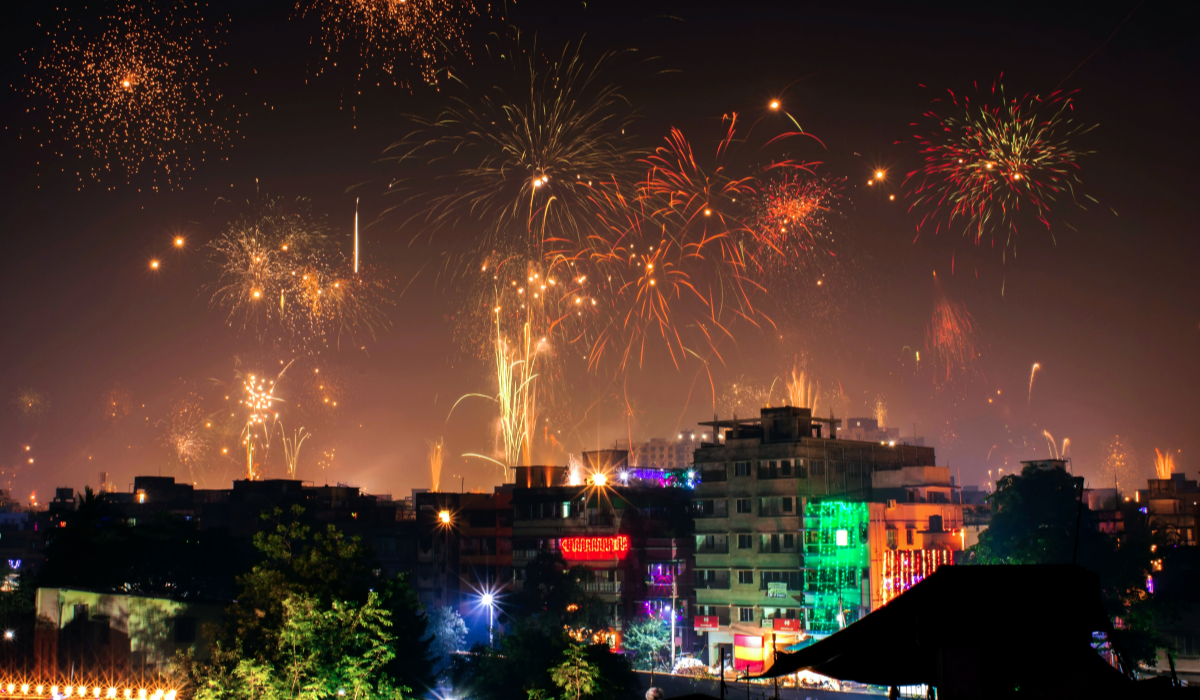One of India’s and the world’s largest festivals, Diwali has been popularly known for years as the Festival of Lights. This year, though, Diwali would fall on November 1, 2024. For sure, it would definitely be a great day that is full of joy and lights and community. Diwali explains what it’s actually all about, to whom it’s important to people, and the traditions people carry out during the day.
Meaning of Diwali

Diwali represents a victory of light over darkness and good over evil. It finds its strong basis in several legends and historic tales, which have at the center Lord Rama’s return to Ayodhya after defeating the demon king Ravana. Diwali occupies a very special place not only in Hindu tradition but also in the lives of Jains, Sikhs, and some Buddhists with their own perception and rituals.
Cultural Implications
It also crosses religious lines to be an occasion of family reunions, community bonding, and reflection on personal and spiritual growth. People welcome this festival of forgiveness, kindness, and celebrations for life by ornamenting their homes with lights and rangolis, inviting prosperity and positivity.
Diwali 2024: What to Expect
Important Diwali dates for the year 2024 will be on:
Dhanteras: October 30, 2024
Naraka Chaturdashi or Chhoti Diwali: October 31, 2024
Deepavali or Diwali or the Main Festival: November 1, 2024
Govardhan Puja: November 2, 2024
Bhai Dooj: November 3, 2024
Diwali 2024: Puja timings, shubh muhurat and more
| Event | Date & Time |
|---|---|
| Diwali Date | Thursday, October 31, 2024 |
| Lakshmi Puja Muhurat | 6:52 PM to 8:41 PM, October 31 |
| Pradosh Kaal | 6:10 PM to 8:52 PM |
| Vrishabha Kaal | 6:52 PM to 8:41 PM |
| Amavasya Tithi Begins | 6:22 AM on October 31 |
| Amavasya Tithi Ends | 8:46 AM on October 31 |
Preparations of Diwali
Diwali preparations begin several weeks earlier. Families clean and decorate their houses with fancy decorations, shop for new clothes, gifts, and plenty of sweets for their loved ones. They also stock up on crackers, though they keep them under checks for safety and environmental considerations.
Rituals and Customs
Throughout Diwali, one goes through these rituals :
Lighting Diyas and Candles: Lighting diyas-the oil lamps-indicated victory of light over darkness. People lit lamps in all the nooks of their homes and gardens for the evil spirits.
The Worship of Lakshmi – Lakshmi Puja: They worship Goddess Lakshmi, the god of affluence and prosperity, whom they invite home, on Diwali’s main day.
Fireworks: Fireworks are usually utilized to celebrate, where the fireworks give off joyful and festive vibrations. Although most cities encourage noisier alternatives and more ecologically friendly activities because of pollution.
Sharing sweets and gifts: Sharing of sweets and gifts among friends and family will strengthen those bonds and share happiness around. Traditional sweets like ladoos, barfis, and gulab jamun are the most traditional prepared during this festival.
Diwali celebrations across India
Diwali is celebrated in different parts of India in unique flavors and customs.
North India
The festival is quite a grand affair in North India with elaborate fireworks, stunning decorations, and vibrant functions. Cities like Delhi, Agra, and Varanasi are known for hosting wonderful cultural events, fairs, and even street performances.
South India
Diwali, or Deepavali, is also enjoyed in South India but a bit differently. There people wake up early in the morning for ritual baths, poojas, and fireworks light-up. Special sweets made from the Mysore Pak as well as various rice items are prepared.
West India
In Maharashtra, people celebrate with a lot of family rituals, and Gudi Padwa marks the New Year. Rangolis are beautiful and lights are there in the streets, and people celebrate cultural events.
East India
In West Bengal, Diwali coincides with Kali Puja, in which Goddess Kali is worshiped. The night is filled with chanting, music, and traditional dances, showing the rich cultural heritage of the region.
The Environmental Impact of Diwali
The festival of Diwali is a celebration that shines bright with lights and enthusiasm. But it is in this sense that it becomes important for the environmental crisis. Fireworks cause air and noise pollution in the environment, hence harming health and the environment.
Eco-Friendly Festivities
There has lately been a movement towards diwali being an environment-friendly festival. Here is how you can make diwali a little eco-friendly:
- Use Eco Friendly Diyas: Earthen diyas are more pleasing than plastic or synthetic one.
- Choose Low-Noise Fireworks: If you have a plan to use fireworks, choose low-noise fireworks and reduce air pollution.
- Plant Trees: Start planting trees or plants on Diwali with your family. It will positively impact the environment.
Diwali 2024: Embracing Inclusivity
Society has been changing, and the way Diwali is celebrated has also been changing. Most communities are taking initiatives to be inclusive in the festival.
Community Engagement
- Local Celebrations: Most localities organize community events and invite people from all walks of life to participate in their celebrations.
- Acts of Social Goodness: People share the happiness and fervor of Diwali with society by giving money to those in need or volunteering at a nearby shelter.
Also Read: https://www.mytownblog.com/kashmir-families-heartbreak-terror-attack/
Conclusion: Diwali 2024
Diwali 2024 will be an energetic fun celebration of love, affection, and bonding. As far as the form that the festival might take could be in terms of community gatherings, family events, or personal introspection about what it might mean; it will still make everyone involved bask in the hope of good times and their desire to spread happiness through the same. The positive energy and bonding, which seems to characterize this festival period as one of renewal and joy, will continue.








